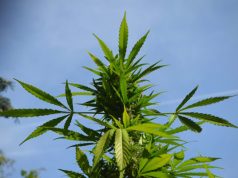The harmful effects of prohibition have been understood by anyone who cares to pay attention. This has been abundantly clear since U.S. alcohol prohibition, way back in 1920 up until 1933.
The prohibition model largely benefits those in power, as it legitimizes their stranglehold over peaceful users of plants. We must protect the American people from the evil devil’s lettuce! From this wrongheaded mindset, of course, comes big drug enforcement budgets and vastly increased police forces focusing on victimless, harmless users. Many of these drug enforcement agents have unapologetically been paid large taxpayer funded salaries to put Americans in cages, spy on citizens and have huge negative impacts on millions of lives. Of course, all of this unchecked power and money is a lot better than actually serving clients and working real jobs on the free market.
Is it a huge surprise then, that it only took the U.S. federal government four years after alcohol prohibition to set their sights on the next evil substance? That of course, being cannabis. Harry Anslinger formed the DEA in 1937 to combat cannabis use, coining the government sponsored word “marijuana.”
Since then, the DEA has grown wildly out of control, bringing along with it propaganda fed to school students in the form of DARE programs. This of course, has had a huge impact on public opinion, creating a non thinking sector of society that can sit in a bar and drink booze for hours, while ironically saying things like “I don’t do drugs.”
When you finally allow a relatively free market for the manufacture, sale and use of cannabis, this prohibition model that benefits only government goons starts to change. Once police manpower starts to focus on real crimes with real victims, budgets can decrease, which means taxes can drop, putting more back into the pockets of We The People. Even though cannabis tax collection is at an all time high in states like Colorado, career government fat cats in favor of prohibition are exposed, often causing government to become more efficient and cost effective.
With a U.S. national debt of almost $19 trillion, and upcoming unfunded liabilities estimated around $100 trillion, it will definitely take more than legal cannabis to save the American economy. But the numbers indicate it’s a good start.
The legal cannabis industry allows for the legal growing, selling and transporting of the plant. Thus, these cannabis businesses advertise, produce various smoking devices and edibles, create packaging jobs, create website managing jobs, etc. Of course all of these jobs employ people that pay taxes. There’s no guarantee that government bureaucrats will spend the tax money on what citizens want, but at least, again, it’s a good start.
The influence that the new legal cannabis industry can have on an economy is huge. But, who benefits the most from that? Is it big oil, the prison industrial complex, police unions and electric conglomerates? Of course they don’t. Lobby groups want to keep the status quo on the millions of disposable urine testing cups, the stranglehold of oil dependence, and huge crony corporations controlling electric grids.
The decentralization of power that comes with prohibition could usher in a new wave of higher quality living for the poor and the downtrodden. The more regulations and prohibitions are removed, the more unemployment, broken homes, poverty and debt can be combated and perhaps reversed.






